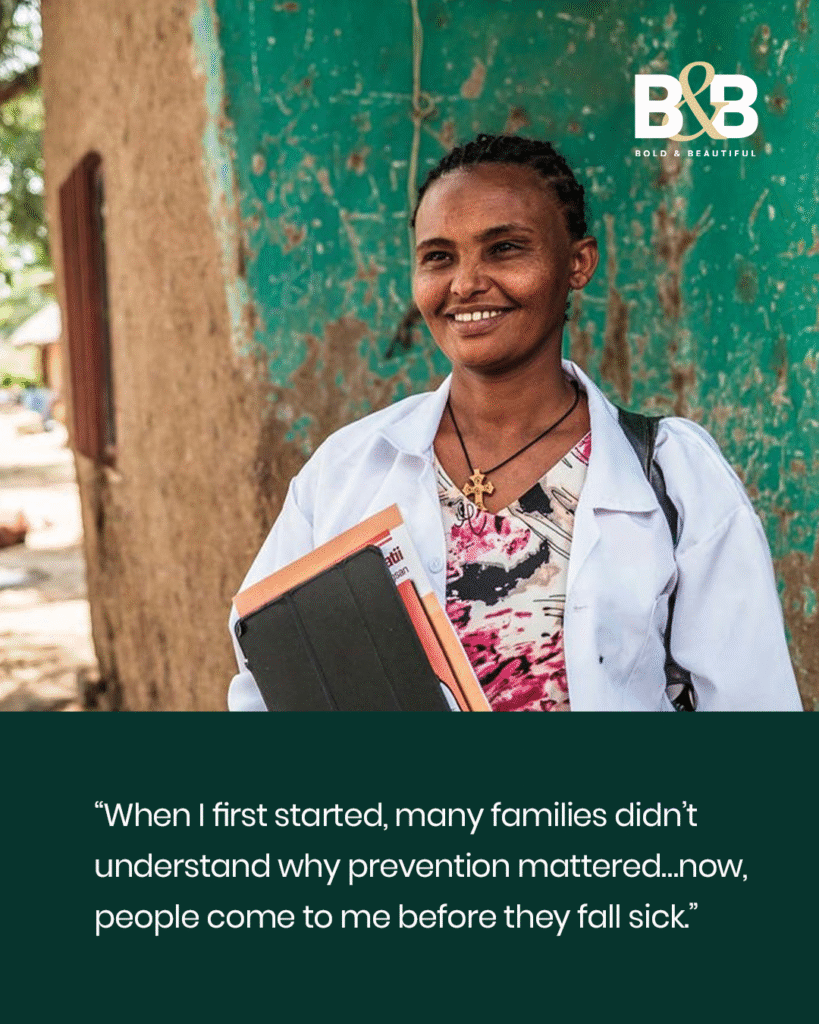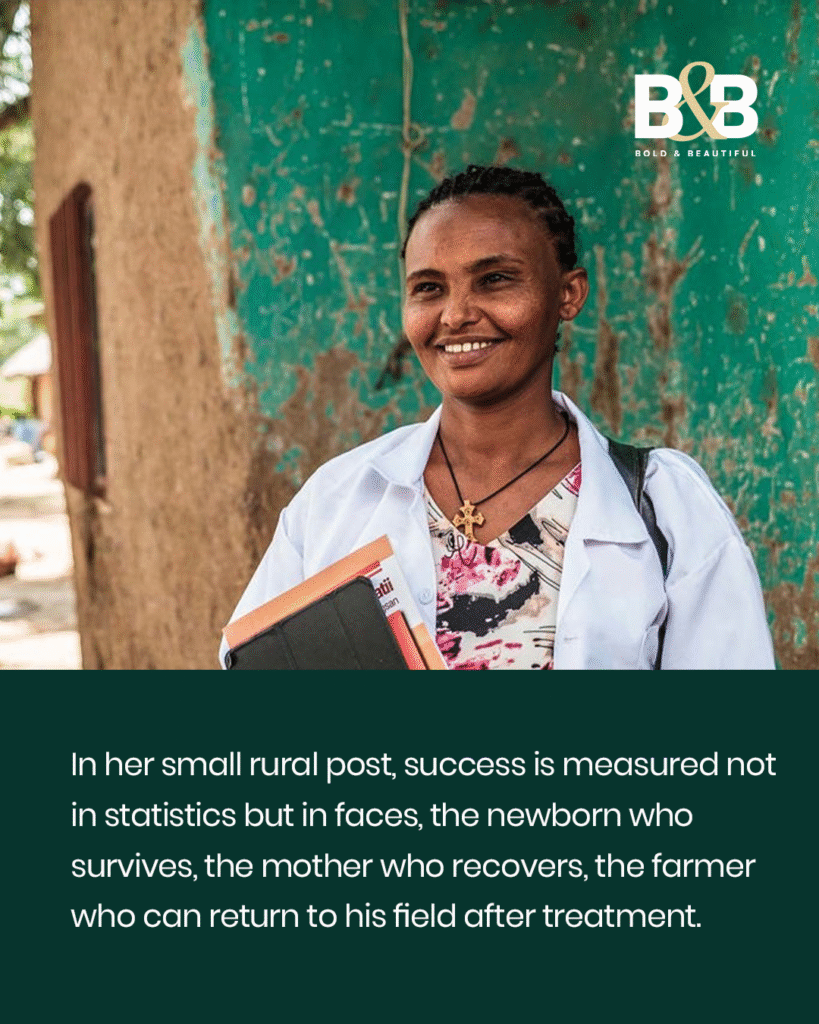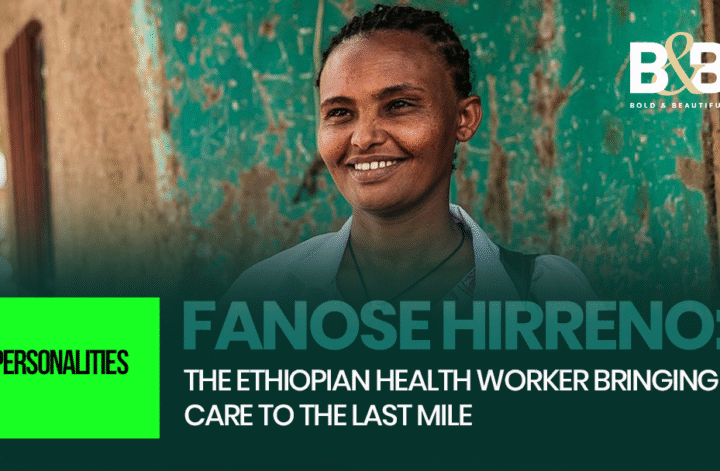In the arid hills of southern Ethiopia, the sound of footsteps on red earth often signals the arrival of hope. That hope is Fanose Hirreno, one of Ethiopia’s 40,000 Health Extension Workers who have quietly transformed the country’s approach to community healthcare. With her blue uniform, medical kit, and unrelenting sense of duty, Fanose has become a lifeline for families living far from hospitals or clinics.

Every morning, she sets out before sunrise, walking from village to village with a satchel of basic medicines, rapid test kits, and educational pamphlets. Her mission is clear: to ensure no one is left behind. Fanose’s days are filled with health talks under the shade of acacia trees, testing for HIV, screening for tuberculosis, and teaching mothers about safe childbirth and nutrition.
The Health Extension Programme, introduced by the Ethiopian government nearly two decades ago, has made health accessible to millions.
Workers like Fanose are recruited from the very communities they serve, giving them a deep understanding of the people’s needs and earning their trust. In rural areas where doctors are scarce, these women have become the backbone of public health.
Fanose’s story mirrors the quiet heroism of thousands like her. Trained in 16 key areas of primary care, she delivers services ranging from immunisation and family planning to malaria prevention and sanitation. “When I first started, many families didn’t understand why prevention mattered,” she recalls. “Now, people come to me before they fall sick.”
Her influence extends beyond medicine. Fanose is also a teacher, counsellor, and bridge between traditional beliefs and modern health practices.
She works with local leaders to encourage immunisation drives and partners with mothers’ groups to spread awareness about hygiene and nutrition. Her compassion, patience, and consistency have earned her deep respect.

In her small rural post, success is measured not in statistics but in faces — the newborn who survives, the mother who recovers, the farmer who can return to his field after treatment. Each visit reinforces her belief that healthcare should not be a privilege reserved for the few.
Ethiopia’s health extension model has become a global example of how grassroots healthcare can save lives at scale. The approach has reduced child mortality, improved vaccination rates, and strengthened community resilience against outbreaks. Workers like Fanose embody its success.
At the end of each long day, she returns home tired but fulfilled. Tomorrow, she will rise again, pack her supplies, and walk another stretch of road that leads to someone in need. Her work may not make headlines, but it defines progress in its truest form — one patient, one home, one life at a time.





